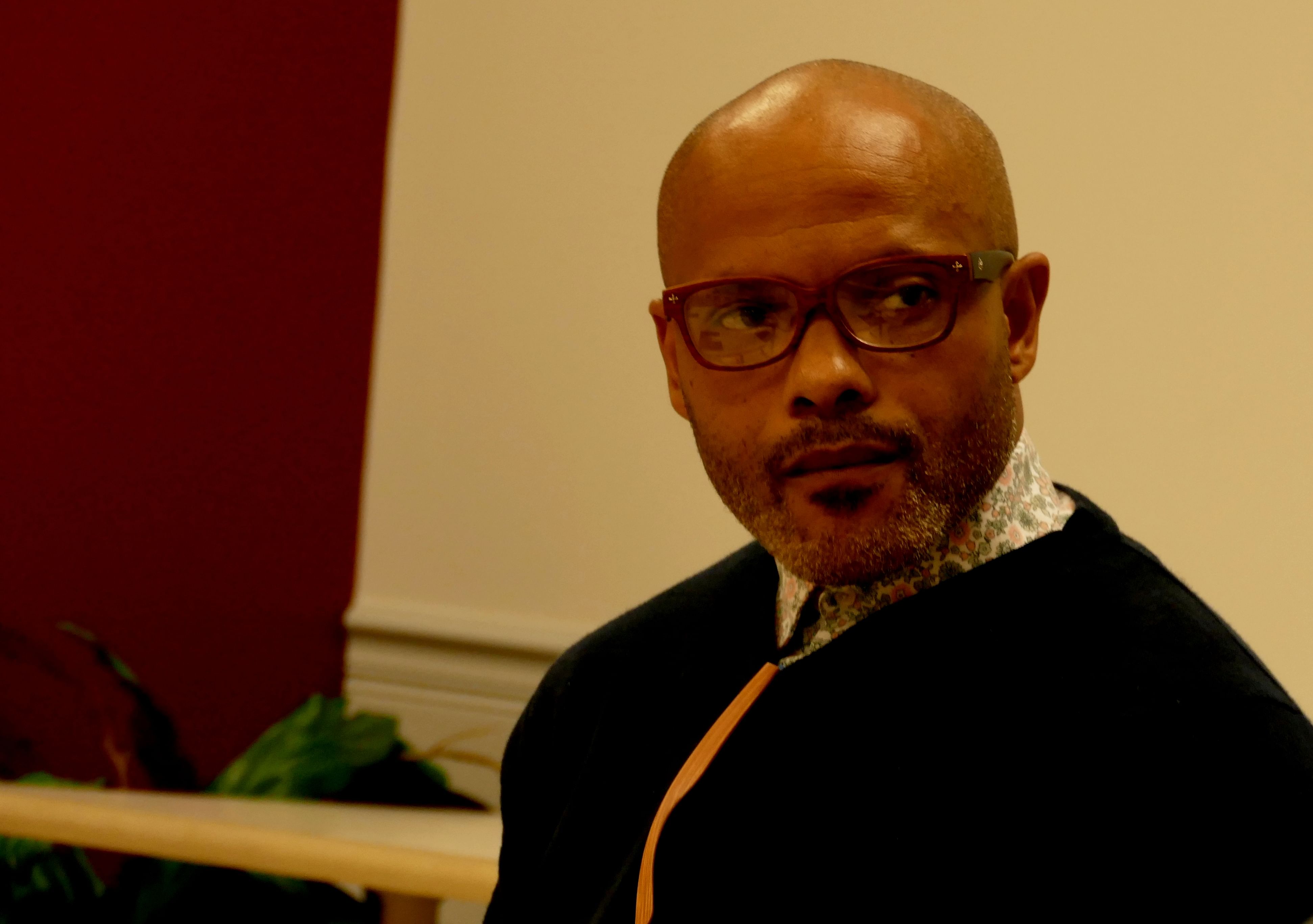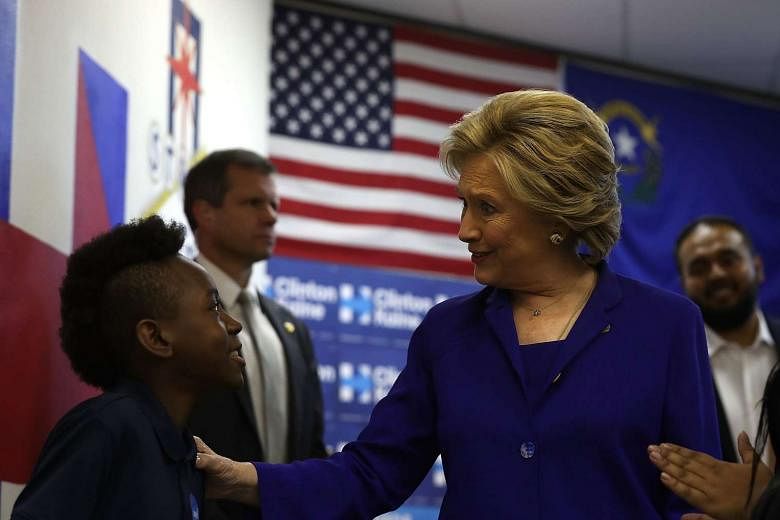"If we win North Carolina, we win it all, '' US Vice-President Joe Biden, stumping for the Democrat Party, said at a "Bring out the Vote'' rally in the state on Wednesday (Nov 2).
Not if the African American vote does not pick up.
North Carolina, one of a handful of key swing states, began early voting on Oct 20.
By Oct 31, while white early voters were running nearly 212,000 ballots ahead of their total from the same day four years ago, black voters were nearly 73,000 behind from the same period.
This spells danger for Mrs Hillary Clinton, and drew President Barack Obama to the state on Wednesday to urge black voters to turn out in greater numbers, warning that his entire legacy was at risk if the Democrats lost the election.
There was more bad news for Mrs Clinton in the state where she has the slimmest of leads on Republican rival Donald Trump. Early votes from registered Democrats were 3.4 per cent behind their same-day totals from 2012, while registered Republicans were ahead of their same-day totals by 6.2 per cent, said political analyst Dr Michael Bitzer of the University of Catawba College in Salisbury, North Carolina.
''Unaffiliated'' voters were ahead of their same-day totals by a significant 37.7 per cent. But with no certainty on who they were voting for, the African American vote - which in North Carolina is considered a solid Democrat Party vote - remains the key to saving the swing state for Mrs Clinton.
The fact that African Americans seemed less than enthusiastic in early voting has set off alarm bells in the Democrat Party.
But black community activists remain optimistic.

Mr Toussaint Romain, an Assistant Public Defender for the state, sprang to fame when he was photographed standing between angry crowds and police in September trying to calm tensions in the wake of the shooting of a black man by a police officer.
A slim, quiet, intense 39-year-old deeply into the writings of black rights icon Martin Luther King, Mr Romain told The Straits Times that black voters would likely come out to vote on polling day - Nov 8 - and deliver victory to the Democrats just as they had for Mr Obama in 2008.
But he acknowledged that Mr Obama was a superior communicator, and black voters were largely unimpressed by both candidates this time around - and there was a real risk they could stay at home.
Dr Bitzer said ''North Carolina is a 45-45 split, with 10 per cent potentially moving either way." He was speaking in an interview at Catawba College's leafy campus, an hour's drive from Charlotte, where the angry crowds had faced off with police that night in September.
Mr Obama won North Carolina in 2008 by just 14,000 votes, he recalled. In 2012, Mr Obama won the presidency again but lost North Carolina to Republican challenger Mitt Romney, who carried the state narrowly, winning 50.39 per cent of the vote to Mr Obama's 48.35 per cent.
''It's all about the ground game - about getting the voters out'' Dr Bitzer said.
In this regard, the Democrat Party has been confident, and has more offices across the state than the Republican Party.
But as Mr Trump's poll numbers surged this week, the confidence turned to anxiety.
This election was "like nothing I have ever seen,'' Dr Bitzer warned. "All the rules have been broken in terms of what we know as political scientists and analysts. We will be studying this election for a long time.''
North Carolina has 15 electoral college votes. In the US system, where the popular vote is important but the electoral college is the critical decider, a candidate needs 270 electoral votes to win.
Polls still predict Mrs Clinton getting to that magic number, but in recent days as Mr Trump's poll numbers have surged, he may run her close - hence the urgency of focusing on swing states like North Carolina, Ohio and Florida. Mr Trump, buoyed by his poll numbers, is himself descending on North Carolina on Thursday to campaign.
For the black community, both candidates were seen as flawed, Mr Romain said. The message of hope that Mr Obama had brought in 2008 had gone, he told The Straits Times. In this election, it was "difficult when you are choosing the lesser of two evils.''
''But African Americans will turn out in strength on Nov 8,'' he insisted.
In a phone interview, Mr Brad Miller, 63, a former Democrat Party Representative for North Carolina's 13th Congressional district who held office from 2003 to 2013, told The Straits Times: "Certainly the African-American vote is very, very important to the Democrats. Democrats have won by winning the African-American vote and then enough white votes to get to 50 per cent.''
The problem, he said, was that the loyalty of African-American voters to Mr Obama was so strong that any other candidate - and especially a white candidate - would "have a very hard time'' matching up.
"There is an extraordinary pride in Mr Obama, and loyalty to him; he can speak to African-Americans in a way that white politicians simply cannot.''
The Democrat Party fielded their heaviest hitter on Wednesday. At Chapel Hill in North Carolina, Mr Obama - in what was seen as his most passionate tone to date in this election season - told an audience of around 16,000 people: "I hate to put a little pressure on you, but the fate of the republic rests on your shoulders.''
"All the progress we hope to make over the next eight years, all of that goes out of the window if we don't win this election. And we don't win this election, potentially, if we don't win North Carolina.''
* Nirmal Ghosh is in North Carolina with the East West Centre's Presidential Election Reporting Seminar.

